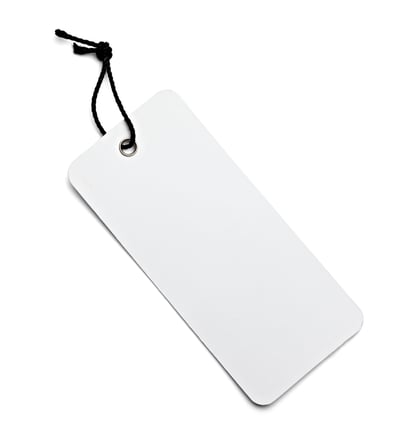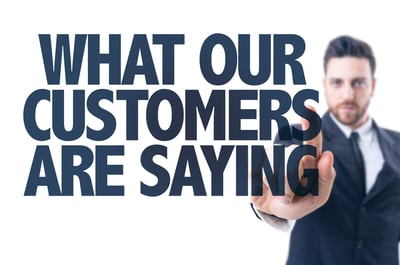Time to read: 12 minutes
Why do hearing aids cost what they do? It's an interesting question and Emma Russell, Value Hearing's clinicial audiologist identifies reasons that you might never before considered.
You can watch Emma's video or read the transcript below.
Hi there, welcome back to Value Hearing’s YouTube channel.
I'm Emma Russell. I'm a clinical audiologist.
Today I'm going to talk about a bit of an awkward topic, which is the true cost of hearing aids.
The reason that we decided to make this video is that do get a lot of questions about why hearing aids do cost so much. And we also get a lot of questions about why some hearing aids are so much more expensive than others (and why) some clinics are more expensive than others.
It's a really tough question, but we thought it was a good idea to just be really honest with you and give you guys a bit of an insight into exactly how the industry works and why things are priced the way they are.
Look, I think and we feel, that there have been some mistakes made in our industry over the last 20 years.
There was a time all not that long ago - 20, 30 years ago - where an audiologist wasn't just a hearing aid salesperson. In fact, a hearing aid was only a small part of what we did.
"We were diagnosing hearing loss and we were choosing to treat it"
 Essentially we were diagnosing hearing loss and we were choosing to treat it.
Essentially we were diagnosing hearing loss and we were choosing to treat it.
Hearing aids could be part of that, cochlear implants could be part of that, but there was also a lot of counselling and rehabilitation included and there still is, but as the digital technology in the hearing aids improved (and even before that the analogue hearing aids were getting better and better) so a big part of the rehabilitation pathway became (prescribing) hearing aids.
What has happened though - and I think I'm too young to know exactly where it all began - but it started becoming more about paying for the hearing aid as far as the consumer was concerned.
So clinics, mostly clinics owned by big hearing aid companies, but even us little independents, were advertising a particular brand of hearing aid or model of hearing aid and saying this is what it costs you.
What we started doing pretty much straight away was bundling our costs in.
We never really showed the end user the consumers what they were paying for in terms of, 'this is what you're paying for the electronics and this is what you're paying for for our expertise and our time and our rehab'.
Paying for expertise
You go to see a physiotherapist, for example, and you pay for your 30, 45, 60 minute appointment with them and yes, maybe you'd buy other things for part of your rehab, but that's separate other pieces of equipment. But you're actually paying for their advice and expertise.
We aren't really that different from a podiatrist or a physiotherapist, except we've got these really expensive electronics involved. So, for some reason, it just became standard globally for all of us to just say, ‘right, here you are; here is a pair of hearing aids they're Phonak (for example) and they cost $6000’.
And what would happen is you would get maybe a year of aftercare, maybe you'd get three years of unlimited appointments, maybe you'd get batteries included, maybe you'd get nothing and you'd still have to pay afterwards each appointment, for example.
But, it would vary from one clinic to the next and it's really, really difficult then for you, as a consumer, to figure out, ‘well what am I paying for? Am I paying for the hearing aid? What aftercare do I get?’.
So, it was really messy and it has really come back on the industry.
Now, they're not too happy with themselves in a lot of ways because really what's happened now is that the consumers are putting it back on them and saying, ‘well why would I pay this for this hearing aid when I can buy the same hearing aid in another clinic a lot cheaper? Why should I pay for this Phonak hearing aid when I can get this other brand for this price?’.
It became all about the product and truthfully we may feel very frustrated, but we did it to ourselves. We've gotten to that point where our own customers do not value our time and our expertise and that's on us. We did this.
I mean, the hearing aid manufacturers really helped with that perception, but we did this.
The power of a great audiologist
A really good example I feel, is when I actually worked for one of the big hearing aid companies, and one of the best ones.
My job was to train and support audiologists, but it was also to go and see people who were wearing that hearing aid and who maybe weren't getting on too well with it and whatnot, and maybe the more complex cases.
I would support the audiologist in those clinical appointments and it was something that you'd hear clients, end users, say, ‘well, I had this brand of hearing aid, (or your brand, or any other brand) and I didn't think it was very good and so I think that's a problem. That brand is no good, it's no good for anyone, no good for me’.
They completely took the audiologist out of it which is so frustrating because you can fit a very basic hearing aid really well, do a really good real ear measurement, get a really great audiologist and you will get a much better outcome in many cases than you would go going to get a really premium product, spending top dollar on it.
But if the actual audiologist you saw didn't do a real ear measurement, or if they did do it (and) they didn't do it well, or perhaps they didn't even select the right device for you; maybe they haven't been good at listening to your needs and fine-tuning based on that - that will mean that the hearing aid that you may have paid top dollar for does not do as well as the more basic model fitted by the good qualified audiologist who actually fitted properly into the correct standards.
You can see where I'm coming from here is that it's very hard to say that it's that particular hearing aid that’s the problem. It can often be the audiologist as well.
So you really are paying for expertise.
It's not just about the hearing aid
What we are now finding that Value Hearing, and slowly it does seem to be more standard in the industry, is that we're unbundling or being more transparent and saying - this is what it costs for the electronics for you, and this is what it's going to cost you for the aftercare with us.
So every appointment that you have, whether the client wants to include it all in one go - we find actually most clients ironically still like that, they love just paying all of it up front - others prefer to pay as they go. Others actually like to just pay per year for their aftercare.
But in some cases with those clients who have been used to this traditional model of just paying for a hearing aid and getting everything included, that now they're finding it difficult to understand that you're actually paying for our time.
They don't always want to pay for our time because they've been used to getting it for "free", or bundled in.
And honestly, as an audiologist - you speak to a lot of us - we're not used to asking to be paid for our time. We are so used to making our money or covering our cost to run the clinic by bundling it in with a hearing aid, that getting clients to pay for appointment is almost uncomfortable for some of us because we haven't been doing it for years.
But I think we're getting better at it and I think the industry is changing because they're starting to realise it's not just about the hearing aid.
Check to see what is included
 So for you as a consumer, it's probably good to really look into what's included.
So for you as a consumer, it's probably good to really look into what's included.
There are a lot of clinics out there that are, quite innocently in some cases, saying, ‘look, you can get this pair of hearing aids’, and it's two or three thousand dollars less on their website than it is maybe from a competitor in the same suburb.
Usually, not always but usually, if you look at the fine print it will be that they're just including the hearing aid in that price. They're maybe not including the fitting appointment. They may not be including the follow-ups or the aftercare in that.
So it's really good to make sure you're comparing apples to apples and actually making sure that when you're doing a price comparison that you are getting the best deal for you.
Another thing that's worth noting is - and it's very hard to measure it - for you to actually look into that clinic. Look at its reviews, look at their website, maybe even just go and have a consultation with them and get a feel for them.
Because obviously there can be clinics out there that don't charge very much for their aftercare or say to you it's going to be all included and you'll have everything covered for the next three or four years and then it's impossible to get an appointment with them.
Maybe it's actually more a case of what is the quality of the appointments you're going to get. Do they do real ear measurements? Are they going to send it off for service at the end of warranty for you? Are they going to actively recall you back every 6 or 12 months?
These are all good questions to ask.
You can end up thinking you're getting a good deal but in fact you're paying less for a lower standard of care.
Standard of care
A bit of a tricky thing for us to talk about is audiologists. But it's a fact there's a big disparity in the industry in standards of care.
When we're good - I'd like to speak for myself here - when you're a good audiologist, we should be able to charge for our time. We've studied hard, we've worked for a long time, we've made sure we're up to date.
It takes a lot nowadays to stay up to date as an audiologist, I can assure you, especially as an independent audiologist who is trying to keep on top of all the brands. It requires hours a week to keep on top of how quickly this industry is changing.
We need to pay for that, we need to pay our salaries, we need to pay rent, we need to pay for our equipment, we need to calibrate our equipment every year, we often have to update our equipment quite regularly which is expensive.
Again, like I said, lots and lots of training which requires a lot of time. It's actually quite a costly business for us as well, so there is a reason why we charge for our expertise.
I would love to hear your feedback on this. Any opinions, any questions, any suggestions (or) if you want more clarity, that would be really good.